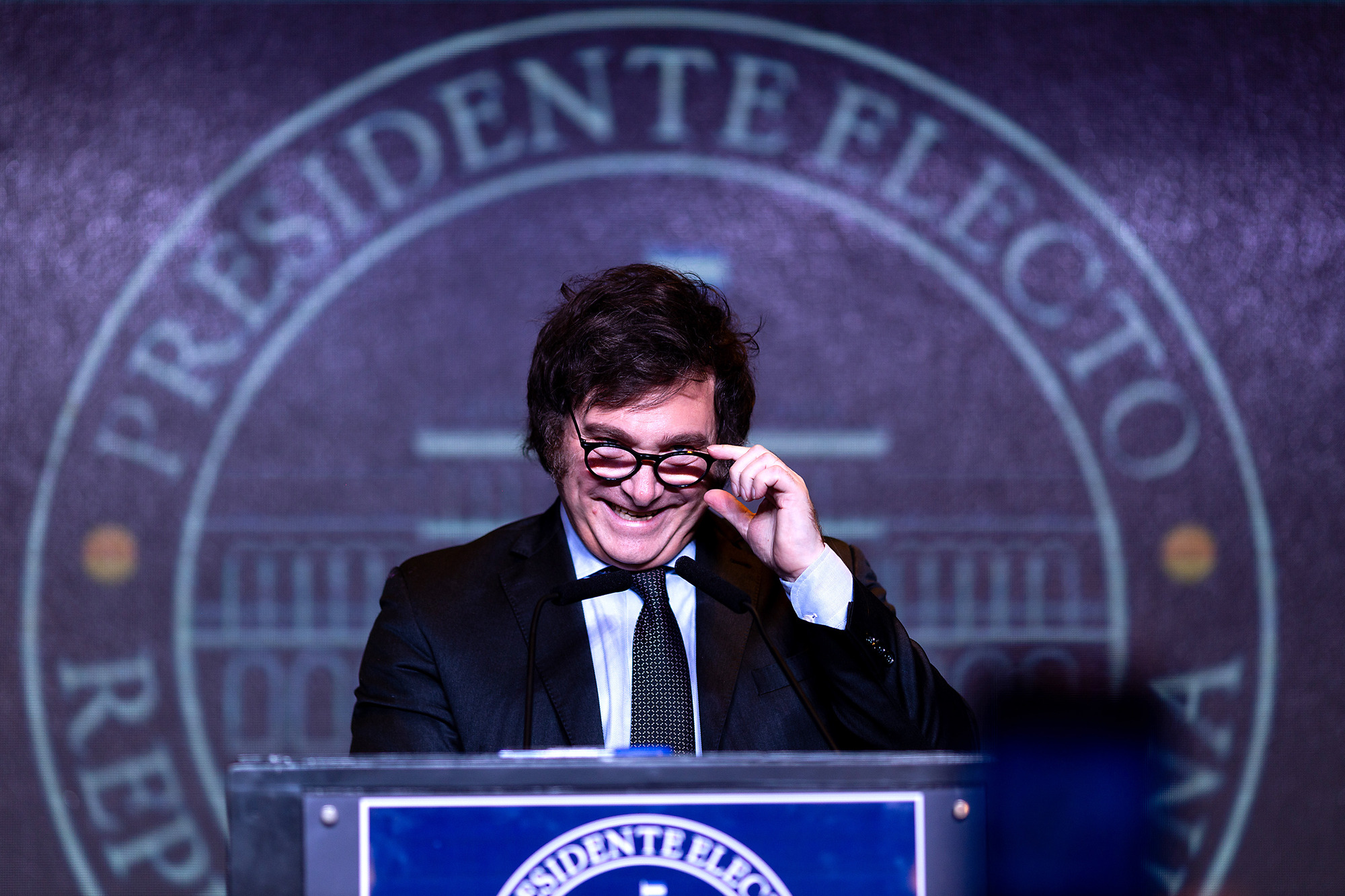Last week, Argentina’s stock market fell by as much as 12% following a series of measures meant to prop up the country’s flailing currency. The central bank announced that it would tighten rules on money-printing to cut the supply and — more controversially — use scarce foreign reserves to buy pesos on the parallel market.
The moves come as something of a surprise for Argentina’s self-described libertarian President, Javier Milei. In the eyes of investors both foreign and domestic, he has resorted to dangerous government interventionism by refusing to let the peso collapse. Why would the man who worships the free market do such a thing?
The reality is that Argentinians elected Milei for a singular purpose: lowering inflation, meaning that his relatively high approval ratings will continue to depend on his ability to deliver results on this front. Upon assuming office in December, the government began a slash-and-burn campaign of cutting the state, raising interest rates and massively devaluing the currency. This led to both a massive spike in inflation as well as a catastrophic downturn in the Argentinian economy during the first half of 2024.
Since then, however, month-to-month inflation declined consistently before levelling off at around 4.5% after May — though annual estimates are still expected to top 250%. Similarly, Argentina appears to have finally exited recession this month with poverty declining by nine percentage points, though this still situates the country’s overall poverty rate at 49%. Critical sectors such as manufacturing also remain in recession.
Bad as things may still be, one would think that markets might be more receptive to these gains. The government has done more or less what it promised, and the aforementioned macro-figures offer some cause for optimism. Investors, however, have much more insular concerns. Their aim is for Milei to succeed in unifying Argentina’s byzantine system of multiple exchange rates and abolish currency controls. The end result of this would be a friendlier investment climate: the government currently sets an official exchange rate for the peso which coexists alongside a parallel and black-market rate for ordinary Argentinians with the goal being for each of these to eventually match and disappear.
More dispassionate observers correctly chide the use of foreign reserves to rescue the peso. By and large, much of the country’s current woes can be traced to a historical propensity for excessive rates of dollar-denominated debt coupled with consistently low rates of foreign reserves. Yet, the problem with allowing the peso to drastically depreciate is that — as in December — it would lead to a rise in inflation as well as a likely return to recession. Having promised Argentinians a V-shaped recovery, further devaluation represents a significant threat to Milei’s political capital.
The great irony is that the President’s tentative success in reducing inflation has been accomplished by recycling the strategies of his Peronist predecessors. The government was initially slated to continue devaluing the peso at a monthly basis of 2% since December. Yet — recognising the catastrophic hit taken by the initial devaluation — it opted to lower interest rates and restore the previous administration’s crawling peg to the dollar, thereby causing an appreciation in the exchange rate.
Fast forward to today and the official exchange rate has recovered virtually all of the value lost in December, while the gap between the official, parallel and black-market rates has only grown. To make matters worse, the country’s paltry foreign reserves remain virtually unchanged since Milei assumed office at around 4% of GDP. What this means is that the government will no longer be able to continue lowering inflation once dollar reserves are completely depleted.
So long as Argentina maintains its circular fetish for the dollar, a negative feedback loop will persist: dollars will be needed both to pay back foreign debt and control inflation via the peso’s crawling peg to the greenback. Milei can mitigate some of this by continuing to make cuts and limiting the money supply. Yet, in the long term, there is only so much state that can be cut; one silver lining is that the US federal reserve may finally begin lowering interest rates, thus easing pressure on Argentina’s external debt.
Most likely, however, Milei will eventually succumb to market demands for devaluation sooner rather than later; in his own words, the President — like most investors — is a market fundamentalist. Whether this outright sabotages recent gains will depend on whether the government embraces interventionism in other ways, such as increasing subsidies for the poor at the cost of increased debt. As the economist Milei should know fully well: economics is the science of trade-offs. The issue is that none of the trade-offs in question are appealing from his perspective.
For the time being, Argentines should enjoy the fact that the trade-off Milei has embraced offers them a temporary respite from months of debilitating recession. Whether it lasts is another question,











Join the discussion
Join like minded readers that support our journalism by becoming a paid subscriber
To join the discussion in the comments, become a paid subscriber.
Join like minded readers that support our journalism, read unlimited articles and enjoy other subscriber-only benefits.
Subscribe